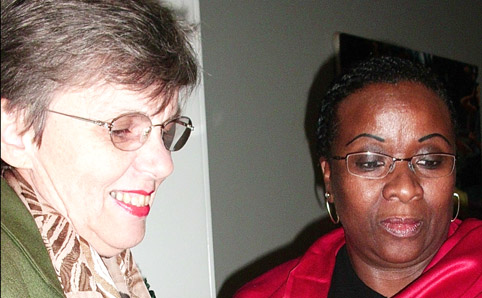Latest News Archive
Please select Category, Year, and then Month to display items
01 July 2021
|
Story Dikgapane Makhetha
|
Photo Supplied

This year, the young people of South Africa celebrated 45 years of the annual commemoration of
Youth Day. The University of the Free State (UFS)
Community Engagement (CE) office on the
Qwaqwa Campus has engaged a number of stakeholders in the call to use football as a means of bringing people together, transforming lives, and enthusing communities. Through partnerships, community organisations have great potential to create opportunities for breaking down barriers and inspiring social cohesion, initiating enablement through the development of social projects, and promoting education and health awareness.
On 16 June this year, local community organisations collaborated in the hosting of a soccer event for the youth of Qwaqwa at the FIFA Football for Hope Stadium in Tsheseng.
The Agape Foundation for Community Development,
Love Life,
Right to Care,
Youth in Action, Qwaqwa FIFA Project, and the Tsheseng Athletics Club were all stakeholders who diligently joined forces to ensure the successful launch of the tournament. Community development practitioners, who are trainees in the UFS Qwaqwa Department of Community Development, were garbed in departmental branded gear and have cautiously facilitated adherence to COVID-19 protocols. About 250 people, including football fans and participants, attended and enjoyed the entertaining games. Through the partnered recreational project, the Qwaqwa Campus CE office responded to the 2021 Youth Day theme: ‘Growing Youth Employment for an inclusive and transformed society’, by enhancing opportunities for networking among stakeholders. Football is popularly known for promoting transformational social projects in diverse communities across the globe.
Empowering teachers: Working with head, heart and hand
2011-06-14
 |
| Prof. JJE Messerschimdt (left) is the main supervisor and Dr KE Khabanyane the co-supervisor of this study within our Faculty of Education. |
The implementation of Curriculum 2005 brought about new demands in the teaching and learning of languages. In teaching languages, it is expected of teachers to focus on the development of the basic language skills which are embedded in the first four outcomes, namely listening, speaking and reading which is coupled with viewing and writing.
Although the learning outcomes are developed as an integrated whole, each one needs special attention. According to the NCS, the third learning outcome namely "reading and viewing", is stated as follows: "The learner will be able to read and view for information and enjoyment, and respond critically to the aesthetic, cultural and emotional value in texts".
Julia Ramabenyane researches The facilitative role of Grade 1 teachers in the development of reading skills in Sesotho. Empowering teachers: Working with head, heart and hand, a workshop for Grade 1 teachers, was held on 27 and 28 May in the Winkie Direko Building on our Main Campus. The aim of the workshop was to create an opportunity for teachers to better understand their role as facilitators in the development of reading skills.
In addition to the facilitation of Mrs Ramabenyane, Prof. Hasina Ebrahim (lecturer at the School of Social Sciences and Language Education), grade 1 teachers from Lesedi and Karabelo Primary Schools, as well as the HOD of Foundation Phase and three grade 1 learners from Karabelo Primary School in Rocklands, participated in the activities.
This workshop, together with other reflective group sessions, formed part of the emancipatory action research of Julia Ramabenyane's Foundation Phase PhD studies. This PhD study is titled The facilitative role of grade 1 teachers in development of readings skills in Sesotho.